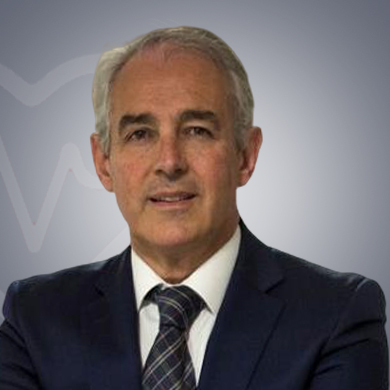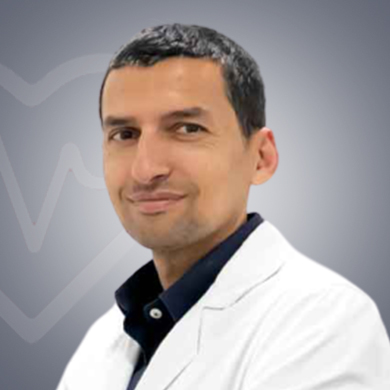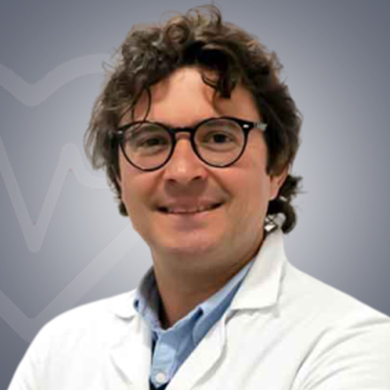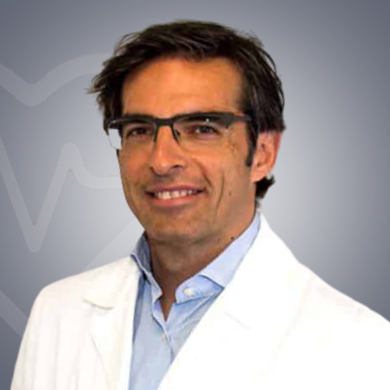
Opthalmologist
Instituto Oftalmologico Quironsalud Dexeus , Barcelona, Spain
30 Years of experience
Speaks: English
Dr. Carlos Verges Roger is a specialized Ophthalmologist in Spain. And one of the most sought after medical specialists in Barcelona, Spain. The doctor has over 30 Years of experience and is associated with Instituto Oftalmologico Quironsalud Dexeus.
Association and Memberships Dr. Carlos Verges Roger is part of:
Certifications :
Qualifications :
Hospital Address :
Instituto Oftalmol
Medical Expertise of Dr. Carlos Verges Roger

Dr. Jordi Farrando is a specialized Ophthalmologist in Spain. And one of the most sought after medical specialists in Barcelona, Spain. The doctor has over 15 Years of experience and is associated with Dexeus University Hospital.
Qualifications :
Hospital Address :
Hospital Universitari Dexeus - Grupo Quir
Medical Expertise of Dr. Jordi Farrando

Dr. Carles Barnes is a specialized Ophthalmologist in Spain. And one of the most sought after medical specialists in Barcelona, Spain. The doctor has over 14 Years of experience and is associated with Dexeus University Hospital.
Qualifications :
Hospital Address :
Hospital Universitari Dexeus - Grupo Quir
Medical Expertise of Dr. Carles Barnes
Using MediGence’s Telemedicine Platform, you can book a personalized video consultation with renowned doctors around the world


Dr. Joan Casado is a specialized Ophthalmologist in Spain. And one of the most sought after medical specialists in Barcelona, Spain. The doctor has over 20 Years of experience and is associated with Dexeus University Hospital.
Qualifications :
Hospital Address :
Hospital Universitari Dexeus - Grupo Quir
Medical Expertise of Dr. Joan Casado
Please make sure to see your doctor using Telemedicine before you even board a flight
Listed below are some of the top Eye Specialists in other cities:
Given below are some of the most popular hospitals in Barcelona, Spain where Eye Specialists work:
An eye specialist is a medical doctor who is trained in diagnosing and treating eye-related diseases. Subspecialist eye specialists have generally completed training that qualifies them to work on eye complex disorders that are complex, involve a particular part of the eye, or impact some groups of people. They also get training more extensively than a regular ophthalmologist to perform complicated surgeries on critical parts of the eye.
Many eye specialists are involved in research on the real causes and cures for eye conditions and vision problems. Ophthalmologists can sometimes detect other health problems that may not be directly related to your eye and could refer those patients to the right medical doctors for effective treatment.
Optometrists, a type of eye specialist, have expertise in taking care of primary health care for your eyes. After completing college, they spent a four-year professional program to get a doctor of optometry degree. Some of them undergo additional clinical training or even complete a specialty fellowship after completing optometry school. They generally focus on regular vision care.
To become a qualified eye specialist, an aspiring candidate should complete his/her MBBS degree and then so post-graduation in Ophthalmology. The required postgraduate degrees are Master of Surgery (M.S.), Doctor of Medicine (M.D.), and Diploma in Ophthalmic Medicine and Surgery. The training and work experience is gained during a Junior Residency at a Medical College under the guidance of experienced faculty and this is known as an internship. Also, further work experience during the fellowship, registrar, or senior resident sharpens the skills of an eye specialist.
Some of the conditions an eye specialist diagnoses and treats include:
Your eye specialist will order certain diagnostic tests to detect the actual problem with your eyes. Below are some common tests generally ordered by an eye specialist:
There are some symptoms and signs that may hint you need to see an eye specialist. If you notice any one of the five signs, book an appointment with your eye specialist immediately.
For scheduled eye exams, you may expect to discuss any changes you noticed in your medical history since you saw your eye doctor last time. And if it is your first appointment, you may be asked to provide a more detailed medical history, including all medications you are taking, and any vision issues your parents might have experienced. Make sure you bring in all eyewear that you are wearing at present so it can be evaluated by your eye specialist.
Besides this, you will need to undergo a series of vision screenings and other vision tests to help determine your eye health and the quality of your vision. These tests will also help to find if your current prescription glasses are still meeting your vision needs. The eye doctor will also check the eyes for signs of any vision problems or eye conditions.
Finally, you should have a detailed discussion about the current state of your vision and eye health, and your eye specialist may suggest vision correction in the form of contact lenses or eyeglasses. Any health problems or serious vision complications would also be discussed, including steps you need to take to protect and preserve your sight.
There are different ways to treat vision problems. Surgery can correct problems, such as glaucoma and cataracts. Other procedures may improve poor vision.
Here are some common procedures performed by an eye specialist:
Top Medical Specialities in Barcelona, Spain are: